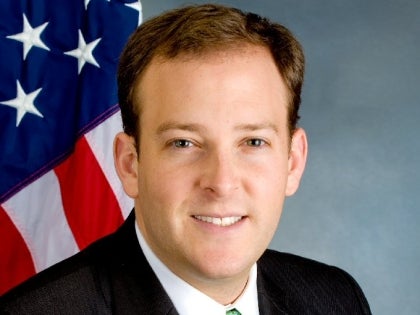
Senator Zeldin Adds To The Record on 2 Important Parts of the MTA Tax Repeal Debate
Lee M. Zeldin
August 24, 2012
State Senator Lee M. Zeldin (R, C, I- Shirley) released the following statement today in response to the Metropolitan Transportation Authority (MTA) challenging the merits of Wednesday’s ruling by State Supreme Court Justice R. Bruce Cozzens, Jr.
Senator Zeldin also addressed the MTA’s threat to drastically increase fares and cut services as a result:
The MTA Payroll Tax is Unconstitutional
Judge Cozzens’ ruling that the 2009 MTA Tax bailout is unconstitutional was correct and it should be upheld on appeal. This bailout what’s known as a Special Law, which can only be passed with a home rule message from the local municipality impacted. If the State Legislature does not receive a home rule message, then each house of the legislature must pass the law with a 2/3 supermajority vote. Normally, local municipalities cannot challenge the constitutionality of state legislation, but there are exceptions. One of those exceptions allows a municipality to sue when its home rule powers are violated under Article IX of the New York State Constitution. In the case of the MTA Payroll Tax passage in 2009, home rule powers were violated, because no home rule messages were received. Additionally, the legislature did not pass the MTA Tax in May 2009 with a 2/3 supermajority vote, making the tax unconstitutional.
The state constitution should not have been ignored with the passage of this tax package and should not be ignored today. Regardless of the merits of what role state government and the non-riding public should play in subsidizing MTA operations, the rule of law provided for in our state and federal constitutions must always be respected and strictly adhered to. Our constitutions were not created as recommendations. Both were created as the foundation of our state and republic. These documents can be amended if necessary, but until amended, must not and should not be violated. The MTA should lose their appeal, not based on whether the tax was a good idea or bad idea, but because it is unconstitutional.
There Are Options Beyond Drastic Fare Increases and Service Cuts
In my short time in office, one of the most predictable experiences I have witnessed has been the MTA’s employment of the fare increase and service cut scare tactic as the first alternative to the MTA Payroll Tax. This public authority just cannot help itself, but to instinctively tap into the ill-advised approach of trying to instill fear into the riding public. It has proven to be one of the most important weapons for the MTA in any public policy debate.
All options must be on the table in identifying alternatives to the MTA Tax. This includes realizing real estate sale/lease opportunities, a more efficient management structure, reduced overtime expenses, and improved work rules, among many others I have identified previously. Additionally, there is no better time than the present to commence a full top-down forensic audit to identify other efficiencies in addition to the ones already known about. There needs to be a respectful and intelligent debate about what is entirely possible beyond the knee jerk declaration that drastic fare increases and service cuts are the first options. All of the MTA’s revenues and expenses must be on the table to decide how to make our nation’s largest mass transit system more competitive and financially stable.
-30-
Last year, on June 15, 2011, the State Senate passed Senator Zeldin’s legislation to repeal the MTA Payroll Tax (S.5596A). Senator Zeldin secured a broad coalition of support for his legislation, including the New York State School Boards Association, Independent Insurance Agents & Brokers of New York, Nassau-Suffolk Hospital Council, New York State Catholic Conference, Empire State Chapter of the Associated Builders and Contractors, National Federation of Independent Businesses, Business Council of New York State, Inc., Conservative Party of New York State, Long Island Business News, New York Farm Bureau, GrowPAC, restructuring expert Harry Wilson, Long Island Cares, Inc., Long Island Business Council, Hauppauge Industrial Association, and several Chambers of Commerce. Unfortunately, the Democratic controlled State Assembly did not allow a vote on this bill.
On July 25, 2011, the New York Post printed Senator Zeldin’s op-ed “After Walder: An MTA To-Do List”. Senator Zeldin’s efforts with his bi-partisan supported legislation ultimately led to a repeal in December 2011 for over 80 percent of those who previously paid the MTA Payroll Tax. Thousands of others received a reduction.